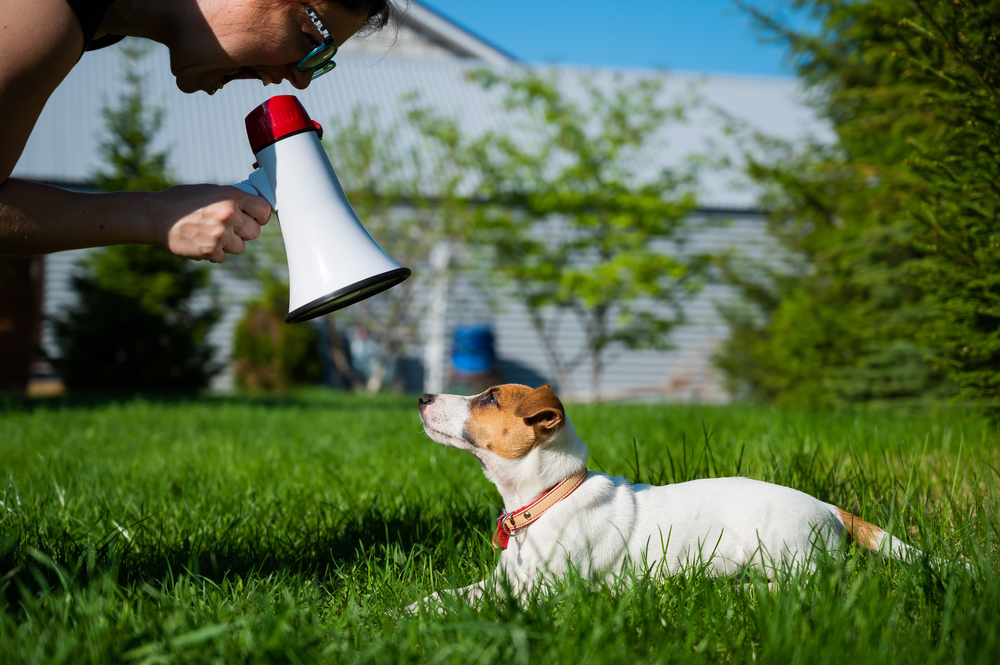Choosing the right dog trainer ensures your pet receives effective and humane training. A good dog trainer can teach essential commands, address behavioral issues, and strengthen the bond between you and your four-legged friend. However, finding the right trainer can be daunting, given the many options available. Oliver Animal Hospital’s veterinarian in south Austin helps you navigate the process by discussing the considerations for choosing a dog trainer.
Why professional dog training matters
Investing in a professional dog trainer provides many benefits, such as:
- Basic obedience — Training sessions can help you teach your dog essential commands such as “Sit,” “Stay,” “Come,” and “Heel.”
- Socialization — Puppy classes are especially helpful for socializing your tiny four-legged friend and helping them learn to interact with people and other dogs.
- Safety — Appropriate training ensures your dog understands commands that can keep them safe in various situations.
- Behavioral management — Some trainers can help you address behavioral issues, such as aggression, anxiety, and excessive barking.
- Strengthened bond — Training sessions provide valuable time for interacting with your dog, which fosters a deeper connection.
Key considerations when choosing a dog trainer
Choosing the right trainer for you and your dog will take research. Considerations include:
- Training philosophy and methods — Look for trainers who use reward-based methods as opposed to punishment or aversive techniques. Positive reinforcement encourages good behavior through treats, praise, and play. Avoid trainers who use choke chains, prong collars, or shock collars, which can make your dog fearful and anxious.
- Qualifications and experience — Ensure the trainer you choose has a certification from a reputable organization such as the Certification Council for Professional Dog Trainers (CCPDT), the International Association of Animal Behavior Consultants (IAABC), the Pet Professional Accreditation Board (PPAB), and the International Association of Canine Professionals (IACP). In addition, ask about the trainer’s experience, particularly with your dog’s breed and any specific behavioral issues you want addressed.
- References and reviews — Ask for references from previous clients or look for online reviews. Positive feedback from other dog owners can be a good indicator of the trainer’s effectiveness. You can also seek recommendations from friends and family. The veterinarian in south Austin is also happy to suggest a good dog trainer.
- Training programs and services — Determine whether you prefer group classes for socialization opportunities or private lessons for individual attention. If your dog has specific needs, such as aggression, anxiety, or service dog training, ensure the trainer has experience in these areas.
- Observation — If possible, observe a training class before committing to join the class to see the trainer’s methods and gauge how they interact with dogs and owners. The trainer should be patient, calm, and respectful, and their approach should foster a positive learning experience.
- Communication and compatibility — The trainer should be able to explain their methods and clearly answer your questions. Effective training involves the dog owner as much as the dog, so ensure you are included in the process and that you are taught how to reinforce the training at home.
Dog trainer red flags

When researching dog trainers, red flags include:
- Using punishment — Physical punishment, yelling, or other aversive methods can cause fear and anxiety in your dog and be counter-productive for reaching their training goals.
- Lacking credentials — Dog training is a mostly unregulated field, and a person doesn’t need credentials to call themselves a dog trainer. Ensure the trainer you choose has appropriate credentials and experience.
- Unwilling to answer questions or allow you to observe a training session — Avoid trainers who are evasive or defensive about their methods or experience and those who refuse to let you observe a training session.
- Overpromising results — Avoid trainers who guarantee specific results in an unrealistic time frame.
Selecting the right dog trainer is a crucial decision that can significantly impact your dog’s behavior and your relationship. Consider the trainer’s philosophy, qualifications, experience, and communication style to find a professional who will work effectively with you and your dog. If you would like dog trainer recommendations, contact Oliver Animal Hospital’s veterinarian in south Austin.







Leave A Comment